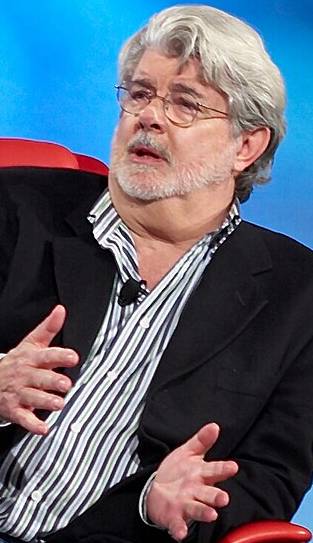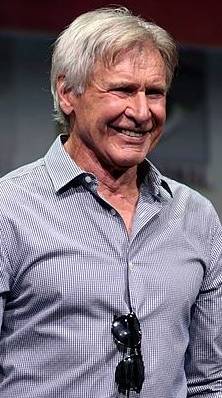Nick
Catalano is a TV writer/producer and Professor of Literature
and Music at Pace University. He reviews books and music
for several journals and is the author of Clifford
Brown: The Life and Art of the Legendary Jazz Trumpeter,
New
York Nights: Performing, Producing and Writing in Gotham
, A
New Yorker at Sea,, Tales
of a Hamptons Sailor and his most recent book,
Scribble
from the Apple. For Nick's reviews, visit his
website: www.nickcatalano.net.
Works of art,
which at the time of their creation enjoy huge popularity,
suffer critical commentary simply because through the years
it has somehow become de rigueur to decry art which
manages to appeal to the masses.
Often the criticism
is a case of jealousy, a product of small and vengeful minds.
Harry Peck says of Mark Twain “A hundred years from
now it is very likely that ‘The Jumping Frog’
alone will be remembered.” About Walt Whitman’s
Leaves of Grass James Russell Lowell says”
No, no, this kind of thing won’t do . . . The good
folks down the road (I mean posterity) will have none of
it.” And this kind of vitriolic reaction reaches deep
into the past and includes prestigious critical names. Voltaire
once uttered, “It is a vulgar and barbarous drama,
which would not be tolerated by the vilest populace of France
or Italy . . . one would imagine this piece to be the work
of a drunken savage.” He was referring to Hamlet.
 In
our own day, it is film criticism which receives much attention
and no film maker has achieved more popularity than George
Lucas. And on too many instances his films have been on
the receiving end of an excess of nasty commentary as if
popularity was a certain sign of a film’s artistic
failure. Lucas is a titanic film revolutionary and because
far too many critics have been negatively predisposed towards
his oeuvres, the artistry of the films has received scant
attention. In "Raiders
of the Lost Ark" Lucas successfully
examines the history of the Ten Commandments, the insidiousness
of Nazi totalitarianism, the compelling mysterious nature
of myth and a futuristic view of the universe. Because he
is a genius at combining the usual Hollywood formula (chase
scenes, suspenseful revelations, violent fights and comic
interludes) with sobering themes, the film attained huge
popularity. In "Star Wars" he brilliantly explored
the future of science, the challenges of space travel and
the natural morality of ‘the force.’
In
our own day, it is film criticism which receives much attention
and no film maker has achieved more popularity than George
Lucas. And on too many instances his films have been on
the receiving end of an excess of nasty commentary as if
popularity was a certain sign of a film’s artistic
failure. Lucas is a titanic film revolutionary and because
far too many critics have been negatively predisposed towards
his oeuvres, the artistry of the films has received scant
attention. In "Raiders
of the Lost Ark" Lucas successfully
examines the history of the Ten Commandments, the insidiousness
of Nazi totalitarianism, the compelling mysterious nature
of myth and a futuristic view of the universe. Because he
is a genius at combining the usual Hollywood formula (chase
scenes, suspenseful revelations, violent fights and comic
interludes) with sobering themes, the film attained huge
popularity. In "Star Wars" he brilliantly explored
the future of science, the challenges of space travel and
the natural morality of ‘the force.’
In “The
Last Crusade” (produced by Lucas) Steven
Spielberg directs a script which carefully explores a father-son
relationship. As we have seen, Jones Jr. is an unusual academic.
He only teaches part time; his principal passion is finding
archeological evidence for age-old mysteries: the account
of Tanis and grail history has historical references everywhere
and the introduction of his father who is also an archeologist
is key. Henry Jones sr. is a religious professor whose quest
for the grail has occasionally compromised the responsibility
of fatherhood. His son Indiana is completely agnostic and
certainly not a staid academic. He tells his archeology
students to “get out of the library” and face
challenges to archeological myths. He is an active adventurer
utilizing his archeological expertise to go out and solve
ancient mysteries. The parent-child tension is developed
from here and it provides unique insight into the age-old
can of worms of parent-child relationships.
“The
Temple of Doom” revives interest in
ancient Mayan culture but more successfully explores the
primitive Thugee cult, a little known group worshipping
Kali, a goddess of doomsday and death. In addition, the
enormous wealth and diet of this North Indian society of
Maharajahs which exists to this day is presented with disturbing
objectivity when one remembers the starving millions in
India.
In “The
Kingdom of the Crystal Skull” Lucas
turns to mysteries in ancient culture of Akator -- an ancient
El Dorado. Once again the escapist scenes (fights, chases,
etc.) service a thematic inquiry into a little known legend.
In this film the introduction of Jones’ long lost
son explores the notion of ‘family comes first’”
and in addition, reexamines the nuclear bomb threats of
the 1950s.
Finally, Lucas
manages to build a story around a recent major archeological
discovery. Only a few years ago archeologists found an ancient
shipwreck near Antikythera , an island between Crete and
the Peloponnese. Antikythera is most famous for being the
location of the 1900 discovery of the Antikythera wreck
from which the Antikythera Ephebe and Antikythera mechanism
were recovered. The Antikythera mechanism is an ancient
mechanical calculator (sometimes described as the first
mechanical computer designed to calculate astronomical positions)
which has been dated from 205 BC. Technological artifacts
of similar complexity did not reappear until a thousand
years later. “Dial of Destiny” suggests that
this miraculous device was developed by Archimedes and references
212 BC as the date of its invention which accurately reflects
the time of Archimedes.
“Indiana
Jones and the Dial of Destiny”
theorizes that Archimedes constructed this amazing device
containing myriad measuring references to access “fissures
in time.” Thus time traveling is initially introduced
way before it gets dealt with in science fiction as in H.G.
Welles’ The Time Machine.
Any successful
artistic creation which references actual historical situations
commonly encountered by humans in science, technology or
history, is bound to attract audiences despite their limited
knowledge of the subject matter. And if the film manages
to communicate the original theme with scenes reflecting
actual science or history, it is usually destined for commercial
and at least some critical success.
Each summer
since 1982 I’ve been taking my university students
to Greece to teach an interdisciplinary seminar on classical
Greece. We of course cover the enormous Greek achievements
in science and mathematics but when we come to 323 BC and
the death of Alexander we swing our attention from Athens
to Alexandria where we encounter the mathematical genius
of Ptolemy, Sosigenes and Archimedes. Every high school
student knows about the latter’s principle of buoyancy.
But the discovery of the Antikythera has such far-reaching
implications his genius is now rightfully receiving a revival
in interest. Actually, scientists are still arguing over
the purposes of this portentous Antikythera metal cylinder
with its numbered references of longitude, latitude, distance
and other esoteric mathematical etchings. Who knows what
ominous data they will find.
It takes a creative
film giant like George Lucas to successfully communicate
the dramatic significance of complex scientific reality
and this last Indiana Jones film Lucas manages to do this
consummately.